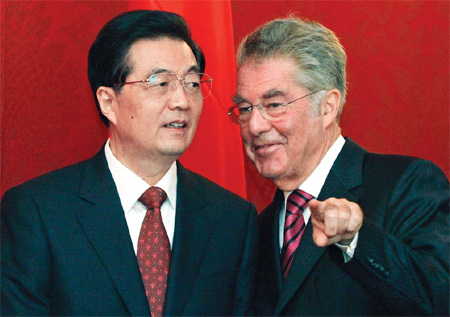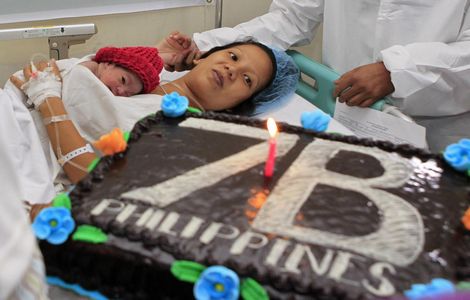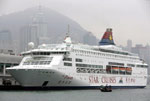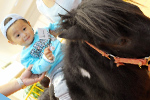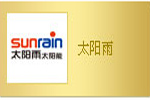Hu confident in Europe
Updated: 2011-11-01 10:20
By Wu Jiao and Li Xiaokun (China Daily)
|
|||||||||||
|
President Hu Jintao and his Austrian counterpart Heinz Fischer attend a news conference after talks at the Hofburg palace in Vienna on Monday. [Photo/ Associated Press] |
Continent has ability to overcome present difficulties, president says
VIENNA / BEIJING - China has confidence in Europe overcoming its present difficulties, President Hu Jintao said on Monday ahead of a key global summit which will focus on the eurozone debt crisis.
"China looks positively at EU development and is following the economic development under the current difficulties with attention," Hu told reporters after meeting his Austrian counterpart Heinz Fischer in Vienna.
"We are convinced that Europe has the wisdom and the competence to overcome the current difficulties," Hu, who will attend a G20 summit in France later this week, said.
Hu stressed that fostering growth, stability and greater cooperation are the keys of success for major economies during these turbulent economic times.
China has frequently expressed confidence that Europe can survive its debt crisis but Hu's current European tour has placed the spotlight firmly on whether China will buy more European government debt.
Zhang Jianxiong, a researcher on European studies with the Chinese Academy of Social Sciences, said Hu's remarks on the European debt crisis were a positive sign.
"President Hu said we are following Europe's economic development with attention. That's a positive signal before the G20 summit in Cannes," Zhang said.
"Of course China expects that the European economy will recover as soon as possible or our exports will suffer."
China's economic growth in the third quarter has already slowed, with declining exports to Europe cited as a major reason by business officials.
Yet analysts warned it does not necessarily mean China will agree to buy more European debt.
China has said earlier that it awaits details on investment options for the European Financial Stability Facility eurozone rescue fund.
The academy's Zhang said Beijing cannot easily promise financial aid to Europe as "the risks are too high".
"I think the Chinese government will prefer a safer way if it decides to lend a helping hand, for example to lend the money to the International Money Fund."
But there has been no indication from Beijing that this is likely, he said.
Ding Chun, director at the Europe Research Center at Fudan University, said Europe hasn't offered a feasible and convincing rescue plan.
"China, itself a developing country, cannot solve the debt crisis of developed European countries," he said, adding that the fundamental solution for the European economy should be a strong growth strategy instead of the current austerity policies.
Overseas observers have noticed that China still has its own problems to overcome despite rapid economic growth.
David Marsh is co-chairman of the Official Monetary and Financial Institutions Forum. In his column, at marketwatch.com, he said that Beijing is under more pressure than ever from an alert Internet-savvy public to resist cash appeals from errant European governments when millions of ordinary Chinese people are struggling with social, economic and environmental problems and even abject poverty.
Hu's visit to Austria, from Oct 30 to Nov 1, is the first by a Chinese president to the central European country for 12 years. This year marks the 40th anniversary of the establishment of diplomatic ties.
Austrian President Heinz Fischer welcomed Hu on Monday morning with military honors and a lavish ceremony.
Hu comes at a time "which is important not only for both China and Austria, but also for the European Union", Fischer said.
Hu, in talks with Fischer, said that China will import more from Austria and he urged Austria to make it easier for Chinese firms investing there.
China also urged Austria to play a positive role in pushing for the EU to recognize China's market economy status and increase the export of high-tech commodities to China.
China has overtaken the US in recent years to be Austria's largest trading partner outside the EU, with trade worth $6.1 billion last year, a 26-percent increase from 2009.
Trade in the first eight months of this year reached $4.6 billion, up 18.4 percent year-on-year. During the past three years, bilateral trade has been growing by an average of 30 percent each year.
The two countries on Monday also signed a series of agreements on energy conservation, environment protection and cultural exchanges.
The University of Vienna will continue its cooperation with related Chinese institutions in developing the Confucius Institute.
More Austrian diplomats to be stationed in China in the future will learn Chinese culture and language there, said Richard Trappl, head of the Confucius Institute under the University of Vienna.
Also, the China Arts and Entertainment Group set up a joint venture with the Austrian art dealer Wiener Stadthalle.
Zhang Yu, board chairman and president of China Arts and Entertainment Group, said the agreement will lead to performances in both countries.
There are also plans for joint performances in other countries, Zhang told China Daily at the signing ceremony on Monday.
Gerhard Feltl, president of Wiener Stadthalle, said it is a "groundbreaking" agreement.
"There are a lot of possibilities that could give added value to Chinese production, with regard to European acceptance and approachability, and vice versa," said Feltl.
"It is significant to enhance the mutual understanding of people from two different cultures."
President Hu also met Austrian Chancellor Werner Faymann on Monday and National Council President Barbara Prammer before traveling to Salzburg on Monday evening.
Austria, seen as a haven of art and music, has been a key attraction for Chinese tourists, with 23,000 visiting the country last year.
Zhao Shengnan and Reuters contributed to this story.
